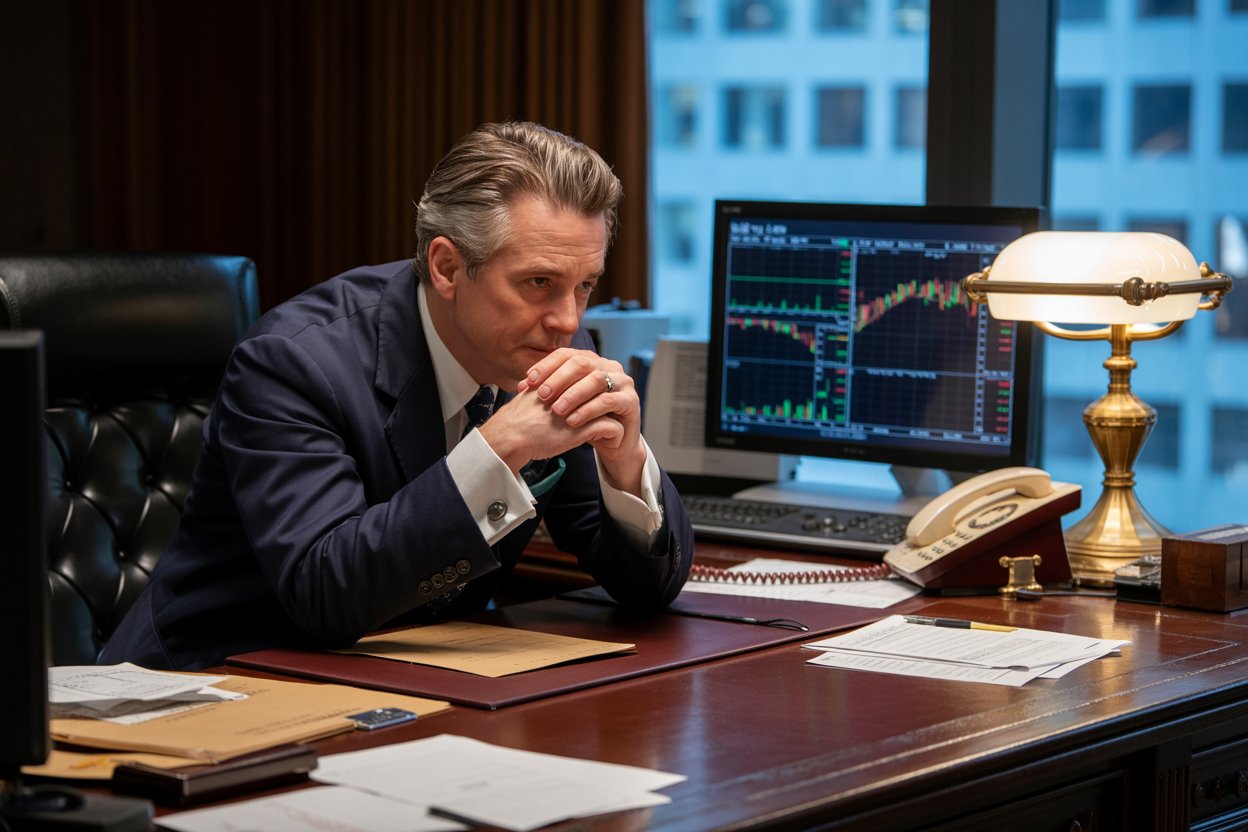Intelligence in trading is not always what you expect. The most astute traders often exhibit behavior that seems counterintuitive, even strange, to the average market participant. While conventional wisdom favors self-confidence and constant action, high IQ traders operate differently. They have learned that success in the marketplace requires a different kind of thinking—one that prioritizes logic over emotion, patience over activity, and humility over arrogance.
These aren’t traders screaming on the trading floor or posting their wins on social media. They are a quiet bunch, who methodically build wealth through behavior that may seem strange to outsiders, but reveals a sophisticated understanding of how markets actually work. Understanding these patterns can help you recognize actual expertise and potentially adopt a mindset that differentiates professionals from perpetual learners.
1. They Like to Make Mistakes Quickly
“Every day I think every position I have is wrong” – Paul Tudor Jones
Most traders cling to their positions like a life raft, hoping the market will eventually prove them right. High IQ traders do the opposite. They are completely obsessed with finding out what they did wrong, and they want to find out as quickly as possible. This is not pessimism—this is intellectual honesty.
When a trade moves against them, they don’t rationalize or adjust their thesis to fit the new reality. They cut the position without hesitation or emotional attachment. What may appear as a lack of confidence to outsiders is actually one of the clearest demonstrations of forward thinking in trading. They understand that being right in the direction of the market is much more important than managing what happens when you are wrong.
This behavior stems from a fundamental truth that high IQ traders intuitively understand: capital preservation is more important than truth. Every dollar lost due to ego or stubbornness is a dollar that cannot be compounded in the future. They have trained themselves to separate their self-worth from the results of their trading, viewing each loss as a valuable lesson and not a failure. This mental separation allows them to make decisions based solely on probability and risk management, rather than on the psychological need to prove them right.
2. They Enjoy Being Boredom
“My thinking was never to make me much money. All I always did was sit.” – Jesse Livermore.
While most traders chase the adrenaline rush of volatile markets and dramatic price changes, traders with a high IQ find true satisfaction in a repeatable and systematic approach. They’re not looking for fun—they’re looking for excellence. To them, boring, consistent strategies are beautiful because they work over and over again without requiring constant innovation or emotional investment.
These traders would rather spend hours backtesting simple strategies than “feeling” their way through complex market conditions. They automate wherever possible, create checklists, and follow processes with almost religious devotion. This monotonous attitude may seem strange to those who view trading as a thrilling game, but it reflects a deep understanding that consistency will increase over time.
The joy they feel comes not from the trade itself, but rather from watching a well-designed system work exactly as expected. They have learned that discipline, not brilliance, produces long-term profits. Every time they follow the process—even if it feels tedious—they deposit statistical profits in the bank. This perspective changes boredom from something to be avoided into something to be actively sought.
3. They Question Every Market Narrative
“The best trades I ever made were when I disagreed with the consensus.” – Stanley Druckenmiller.
When a consensus forms around a particular market story, high IQ traders instinctively pause and observe. They don’t accept narratives from financial media or social media sentiment at face value. Instead, they treat every widely accepted explanation with healthy skepticism, and always ask: “What if everyone is wrong about this?”
This contrarian attitude is not about being different for one’s own sake. It’s about realizing that markets are most dangerous when everyone agrees. These traders have learned that people are often right during trends, but very wrong at turning points. By constantly questioning dominant narratives, they position themselves to know when sentiment has gone too far.
They think more about probabilities than predictions, assigning probabilities to various outcomes rather than betting everything on one scenario. This probabilistic thinking makes them flexible and open to changing their minds as new information emerges. Their skepticism may make them appear cynical or overly cautious, but it is actually what maintains their independence. They should not be swept up in euphoria or panic because they are always running mental simulations of alternative scenarios.
4. They Think in Common, Not Opinions
“If you can’t measure it, you can’t control it. The things you measure tend to get better.” – Ed Seykota
High IQ traders approach the markets like mathematicians, not fortune tellers. Their trading journals are more like spreadsheets than diaries, containing risk/reward ratios, expectation calculations, and position sizing formulas. They are less interested in predicting what will happen and more focused on managing what could happen.
This analytical approach means they spend less time debating whether a stock will go up or down and more time calculating exactly how much risk there is on each trade. They view each position through the lens of expected value, understanding that even trades with a high failure rate can be profitable if the math works in their favor. Their conversations about trading revolve around numbers—win rates, average winners versus average losers, maximum drawdowns—and not hot tips or market opinions.
This rational detachment may seem cold or too mechanical, but it is what allows them to make optimal decisions under conditions of uncertainty. Emotions do not cloud their judgment because they have reduced trading to a series of mathematical exercises. If you think in terms of equations, you can’t rationalize poor risk management or overly large positions. The calculations make sense or not.
5. They can stop trading for weeks without worrying
“I just wait until there’s money lying around the corner, and all I have to do is go there and get it.” – Jim Rogers.
Perhaps the strangest behavior: truly intelligent traders can go a long time without making a single trade and feel very comfortable doing so. Although most market participants feel uneasy or anxious when not actively trading, high IQ traders consider not taking action to be a valid strategic decision.
They fully understand that not all market environments offer favorable conditions for their approach. Rather than forcing trades to satisfy a psychological need for activity, they wait patiently for setups that meet their specific criteria. This patience reflects an understanding that the best opportunities come from waiting out asymmetric risk/reward scenarios, not from continued participation.
Their restraint often seems unusual for impulsive traders who equate activity with productivity. But these patient traders realize that overtrading is one of the quickest ways to erode an edge. They have learned that sometimes the best trade is no trade at all. This ability to sit still shows a level of self-control that is rare in the market and essential for longevity.
Conclusion
High IQ traders do not advertise their intelligence through complexity or boldness. Instead, they express it through self-control, skepticism, and strict self-control. Their behavior may seem strange to conventional market participants precisely because they reject the emotional patterns that drive most trading decisions.
These traders have learned that success in the markets isn’t about being smarter in the traditional sense—it’s about managing yourself better. They have developed mental frameworks that allow them to act rationally when others cannot, wait patiently when others will not, and admit mistakes when others refuse.
Their strange behavior isn’t a quirk—it’s a competitive advantage that separates the professionals from the gamblers. By recognizing and adopting these patterns, aspiring traders can develop a mindset that produces consistent profits in challenging markets.
football News
News
Berita
News Flash
Blog
Technology
Sports
Sport
Football
Tips
Finance
Berita Terkini
Berita Terbaru
Berita Kekinian
News
Berita Terkini
Olahraga
Pasang Internet Myrepublic
Jasa Import China
Jasa Import Door to Door



